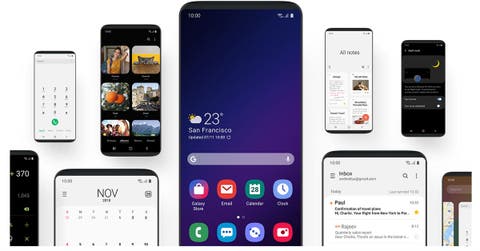With the recent One UI 3.0 and 3.1 updates based on Android 11, Samsung has changed its policy of closing apps running in the background.
Enthusiasts and developers alike note that the new feature closes applications aggressively. This is done in order to extend the battery life.
It is noted that the new feature has become part of the Android 11 update. By default, the function is enabled and works much more aggressively than it was before. Due to the new rules, applications lose some of their capabilities. For example, applications in the “health” category that collect data about the user’s activity and health from sensors in the background are turned off and are not able to work correctly. Testing has shown that the new rules are triggered within three minutes of inactivity of the device with the screen off.
Samsung does not offer users a choice – there is no setting that would completely disable the new feature. Apparently, the only way to reverse the overly aggressive app policy is to turn off Android battery optimization entirely.
IDC: The smartphone market has returned to growth
Experts of the analytical company IDCsummed up the results of the fourth quarter of 2020 and the whole year in general on the smartphone market. As stated in the corresponding report, the smartphone market returned to growth. Sales in the fourth quarter of 2020 were 385.9 million units, which is 4.3% more than smartphones sold in the fourth quarter of 2019. At the same time, for the entire 2020, smartphones were sold 5.9% less than in 2019.
At the end of the fourth quarter of 2020, Apple was named the market leader. It was able to increase sales in annual terms, that is, compared to the same quarter of the previous year, by 22.2% – from 73.8 to 90.1 million devices. This led to an increase in Apple’s share from 19.9% to 23.4%. The second place is occupied by Samsung, which in annual terms increased sales by 6.2%, as a result of which its share increased from 18.8% to 19.1%. The third place is taken by Xiaomi. Its share increased from 8.9% to 11.2%. The top five also include Oppo and Huawei. Also, The share of Oppo increased from 8.3% to 8.8%. The share of Huawei decreased from 15.2% to 8.4%.
As for 2020 as a whole, Samsung remained the leader with 20.6% of the market. Apple is in second place with 15.9%. The share of Huawei, which is in third place at the end of 2020, is 14.6%. The fourth-place belongs to Xiaomi, whose share is 11.4%, the fifth – to Vivo, whose share is 8.6%. In 2019, Samsung’s share was 21.6%, Apple’s 13.9%. Huawei – 17.5%, Xiaomi – 9.2%, Vivo – 8.0%.
